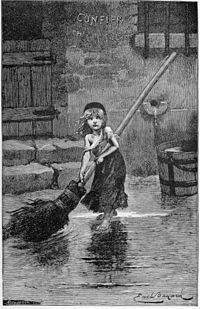Lost in Translation by Gerri Brousseau
I have been giving a lot of thought to the English language and how difficult it must be for a non-English speaking person to learn. We have so many words which sound the same, but are different (i.e., to, too and two; are, our, hour). Then there are the words which are spelled the same, yet mean something totally different. For example one might say, "It's quite windy out today." Or, one may say, "That was a long and windy road." Then there are the rules of grammar, such as "i" before "e" except after "c". Good Lord! How in the world could anyone ever learn the language we speak? Some may master being able to speak it with enough proficiency to get by, but would they really understand the "inner workings" of it, so to speak? I'm thinking about this because I have recently gotten the Rosetta Stone and am attempting to learn a foreign language. I wonder as I plod through the exercises if I'm really learning the inner workings. Does the Spanish language have rules, such as "i" before "e"? Does French have words that sound the same, but have altogether different meanings? And even more so, how well does a novel written in English then translate into a foreign language and visa versa? How much would be lost in translation?
I have just recently started reading "The Girl with the Dragon Tattoo" and discovered the author, Stieg Larsson, was Swedish. He had written the three manuscripts, "The Girl with the Dragon Tattoo", "The Girl Who Played with Fire" and "The Girl Who Kicked the Hornet's Nest" in his native language. He submitted them in 2004 and shortly thereafter, he died. These three novels then had to be translated from his native tongue into English. It's so sad to think Stieg never lived to see the huge success of his work. But, before I get off on that tangent, let me say the beginning of this book, at least for me, is very difficult to wade through. Perhaps it is because of the fact that it was translated. I am finding it very hard to get into.
 Then I remembered when I began to read the novel, "Les Misérables", written by Victor Hugo, which I presume was originally written in French. I am ashamed to admit I have yet to finish that novel, but I have to say, in my own defense, that it is not until page 336 when we meet the hero, Jean Valjean … need I say more?
Then I remembered when I began to read the novel, "Les Misérables", written by Victor Hugo, which I presume was originally written in French. I am ashamed to admit I have yet to finish that novel, but I have to say, in my own defense, that it is not until page 336 when we meet the hero, Jean Valjean … need I say more?
This made me think about books written in English, which are then translated into foreign tongues. Would our American puns, quips and quirky sense of humor be lost? I know a few authors whose work has been translated into foreign languages and I wonder if much of what makes them popular and NYT best-sellers here would carry over or would be lost in the translation. Your thoughts?
Filed under: romance








Lady Smut
...more
- C. Margery Kempe's profile
- 52 followers



